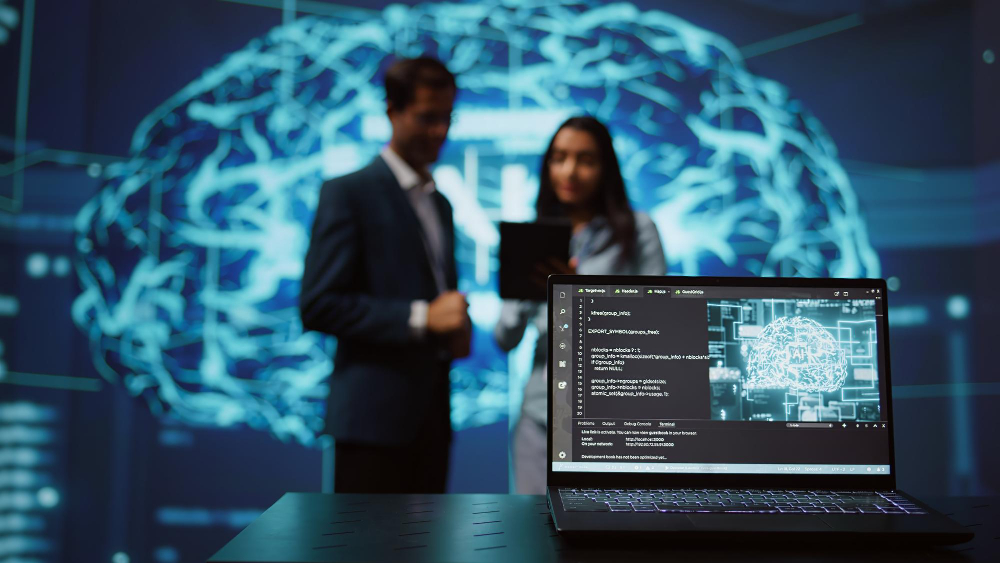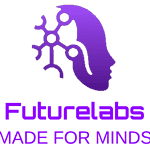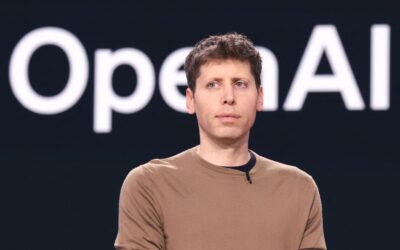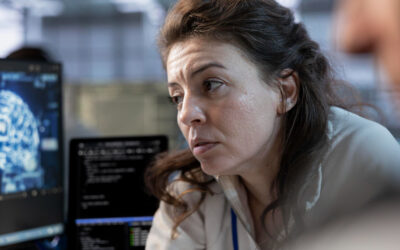David Game College, a private institution in central London, launched a pilot project about six months ago to prepare students for secondary education exams using artificial intelligence (AI) instead of teachers.
However, the initiative is viewed with caution by a researcher working in this technology.
The institution “monitors” how students learn in their courses and analyzes “information about their learning habits,” explains the school’s deputy director, John Dalton. “Artificial intelligence is going to transform education. There is no doubt about it,” adds Dalton.
So far, seven secondary students are part of the pilot project. In a small classroom, they have computers to access the program.
According to John Dalton, who is a biology teacher, AI can evaluate a student’s knowledge “more accurately than the average teacher” and allow for more personalized teaching. It can also help identify gaps in students’ learning.
Instead of teachers, the seven students have “educational coaches,” who are qualified as teachers but do not necessarily know the content of the different subjects.
Their role is more about guiding students in using AI systems. They also support them in acquiring less technical skills, such as debating ability.
British Prime Minister Keir Starmer committed in mid-January to making the United Kingdom the “world leader” in artificial intelligence. The Labour leader announced an action plan that should attract companies and investors and boost a declining economy.
The government claims that AI could help teachers organize their classes and also in grading exams.
“Aila,” the Lesson Assistant
The government has developed its own tool, a lesson assistant called “Aila,” adapted to the British school curriculum.
For Rose Luckin, a professor at University College London (UCL) who studies AI uses in education, the David Game College pilot project is a “unique case.”
But the professor questions AI’s ability to teach “everything in mathematics, English, biology, chemistry, and physics. I don’t want to be too negative because if we don’t try these tools, we won’t see how they work.”
Rose Luckin acknowledges that AI will “transform” the role of teachers, although it is still “impossible” to know in which direction.
The professor hopes that David Game College will assess whether AI “has a positive or negative impact.”
Massa Aldalate, a 15-year-old student, expresses a positive impression of the experience. “At first, I had doubts,” she says, sitting in the classroom. “But it’s much more efficient if you really want to finish your work,” adds the teenager, who says she does not miss the traditional classroom.
Regarding English classes, one of her favorite subjects, she thought the subject required having a teacher in front of her, but she admits the experience “worked.”
One of the two main teachers’ unions, the National Education Union, welcomed the government’s emphasis on training teachers in digital tools.
However, its general secretary, Daniel Kebede, stressed that this ambition must be translated into “significant investments” to equip institutions with the necessary technologies.
Rose Luckin points out that the David Game College program is “elitist,” with an annual cost of £27,000 (about $33,700), equivalent to an increase of £10,000 (about $12,500) compared to the average tuition cost in private schools in the UK.
Inequality in access to technology is also a “challenge” posed by AI, she concludes.
Collaboration by AFP Agency






0 Comments